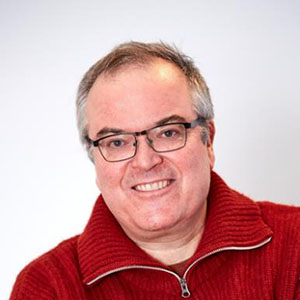
Niels Bagge
Country: Denmark
Organization: Danish Society for Person-Centered and Experiential Psychotherapy
Short CV
Niels Bagge, cand. psych. University of Copenhagen, authorized psychologist, specialist and supervisor of psychotherapy. Emotion Focused Therapy (EFT) facilitator, supervisor and trainer, Focusing Trainer, mindfulness meditation teacher (MMTCP), Holotropic Breathwork Facilitator. Head of Institute for Emotion Focused Therapy Denmark & private practice in Roskilde, Denmark. Chair of Danish Society for Person-Centered and Experiential Psychotherapy.
Workshop
Title: “The Polyphony of Emotion-Focused Therapy Practice”
Emotion-Focused Therapy (EFT) is part of the PCE-therapy tribes as a humanistic integrative psychotherapy with roots in the person-centered approach and integrating experiential practices in a client responsive moment to moment process of facilitating emotional change. It is founded both in a psychotherapy research tradition through 40 years, and in everyday clinical practice of psychotherapy. Polyphony is derived from the Greek word for “may sounds”. In music polyphony means the simultaneous combination of two or more tones or melodic lines (www.britannica.com). In this workshop we will explore the many layers of relating, assessing, facilitating and formulating that constitutes the polyphony of Emotion-Focused Therapy practice. The EFT therapist is engaging in many simultaneous processes that come together in one polyphonic expression with the client. One set of layers are the principles of relating and therapeutic tasks, or “following and guiding”. Another is the EFT compass’s: Emotional assessment, change principles, case-formulation and task markers of problems. The workshop format will contain short presentations, demonstrations, experiential exercises and discussion in the group. The participants are invited to explore experiential more and more layers of the polyphony of EFT practice in exercises with therapist and client roles. We end with an open discussion of the experiences and the questions: Is practising polyphony possible? Or are we talking about sequences of monophony of relating, assessing, formulating and facilitating? Or maybe homophony “chords” of layers of practice.

